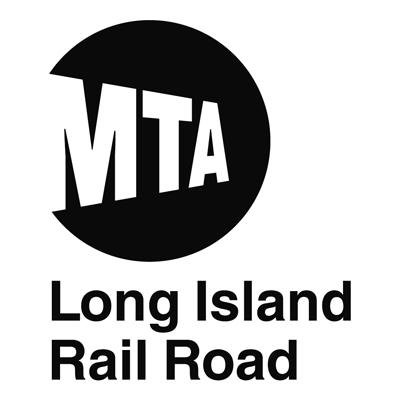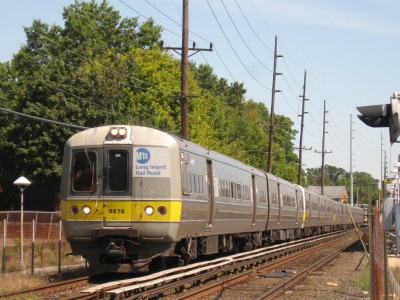 Long Island Rail Road (LIRR) riders who use pre-tax dollars to pay for their commute are the beneficiaries of a new federal law which took effect on Friday, Jan. 1.
Long Island Rail Road (LIRR) riders who use pre-tax dollars to pay for their commute are the beneficiaries of a new federal law which took effect on Friday, Jan. 1.
The Protecting Americans from Tax Hikes (PATH) Act of 2015 raised to $255, from $130, the maximum monthly amount of pre-tax dollars the Internal Revenue Service (IRS) allows for the purchase of mass transit tickets through employer-sponsored commuter benefit programs.
In 2015, the IRS let a driver set aside no more than $240 in pre-tax dollars each month for parking fees, providing an economic incentive for motorists to clog the nation’s highways. The IRS is in 2016 treating mass transit riders and drivers equally, allowing both to use up to $255 a month in pre-tax dollars for commutation purposes. The PATH Act also created permanent tax parity in this regard between mass transit riders and drivers.
“This is a huge victory for Long Island’s mass transit commuters that can save them hard-earned dollars on their expensive commutes. As the price of commuting continues to climb, this commuter tax break has become increasingly vital for Long Island residents, who already experience a very high cost of living. Mass transit is the lifeblood of Long Island and the greater New York City area, and that’s why I pushed so hard to have the federal transit benefit included in this must-pass bill,” said U.S. Senator Charles Schumer, in a statement, days before President Obama signed the legislation into law on Dec. 18.
 The $255 figure is a significant one for Nassau’s daily LIRR riders. For instance, it costs $252 to purchase the least expensive monthly LIRR ticket into New York City from western Nassau (zone 4). That same ticket cost $135 in 2003, meaning the price of a monthly LIRR commute from the Nassau communities nearest the city has soared nearly 90 percent over the past 13 years, and rose even higher for those in eastern Nassau and Suffolk. The state Legislature piled on in 2009, imposing a Metropolitan Transportation Authority (MTA) payroll tax on commuters and non-commuters alike in New York’s 12 downstate counties, a measure that remains in effect, even after its partial rescission in 2011. The MTA is the LIRR’s parent agency.
The $255 figure is a significant one for Nassau’s daily LIRR riders. For instance, it costs $252 to purchase the least expensive monthly LIRR ticket into New York City from western Nassau (zone 4). That same ticket cost $135 in 2003, meaning the price of a monthly LIRR commute from the Nassau communities nearest the city has soared nearly 90 percent over the past 13 years, and rose even higher for those in eastern Nassau and Suffolk. The state Legislature piled on in 2009, imposing a Metropolitan Transportation Authority (MTA) payroll tax on commuters and non-commuters alike in New York’s 12 downstate counties, a measure that remains in effect, even after its partial rescission in 2011. The MTA is the LIRR’s parent agency.
Mass transit parity was first incorporated into 2009’s federal American Recovery and Reinvestment Act. Before 2009, mass transit users could set aside no more than $120 a month in pre-tax dollars for their commutation expenses whereas drivers could use up to $230 a month in pre-tax dollars for parking. In the intervening years, Congress has wavered on whether the IRS should treat equally mass transit riders and drivers.
Many New York City employers retain WageWorks, Inc. to administer their commuter benefits programs. The San Mateo, California-based firm disburses TransitChek vouchers to employees who take mass transit to work and allocate pre-tax dollars for that purpose, and TransitChek parking cards to employees who pay for parking using pre-tax dollars.
The MTA’s board determines what the MTA’s LIRR charges its riders, and those gubernatorial appointees rarely show an interest in protecting anyone from either a tax or a rate hike. Indeed, in the MTA’s November 2015 financial plan, the MTA projects it will raise fare box revenues by four percent in March 2017, and then another four percent in March 2019.
If these projections are reflected in the LIRR’s pricing, a zone 4 monthly LIRR ticket into New York City will more than double in price over a 16-year period (2003-19), jumping to $272 from $135.
 Mike Barry, vice president of media relations for an insurance industry trade group, has worked in government and journalism. He can be reached at mfbarry@optonline.net. The views expressed in this column are not necessarily those of the publisher or Anton Media Group.
Mike Barry, vice president of media relations for an insurance industry trade group, has worked in government and journalism. He can be reached at mfbarry@optonline.net. The views expressed in this column are not necessarily those of the publisher or Anton Media Group.


















